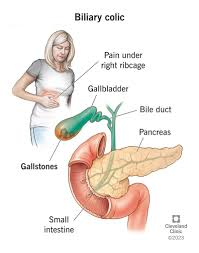Which intervention by a psychiatric nurse implements the ethical principle of autonomy?
Intervening when a client with a history of self-mutilation attempts to self-injure.
Suggesting that two clients who were fighting be restricted to the unit.
Staying with a client who is demonstrating a high level of anxiety.
Exploring alternative solutions with a client, who later chooses one alternative.
The Correct Answer is D
Choice A Reason
Intervening when a client attempts self-injury may be necessary to ensure the client's immediate safety. However, this action does not primarily implement the ethical principle of autonomy. Autonomy involves respecting the client's right to make their own decisions, including the right to refuse treatment. In cases of self-harm, the nurse must balance the ethical principles of autonomy and nonmaleficence (the duty to do no harm)
Choice B Reason
Suggesting restrictions for clients who were fighting might be a measure to maintain safety within the unit. However, this suggestion does not uphold the principle of autonomy, as it involves limiting the clients' freedom and choices. The ethical principle of autonomy emphasizes the clients' right to make independent choices and to control their own actions.
Choice C Reason
Staying with a client who is experiencing a high level of anxiety is a supportive action that can be therapeutic. While it demonstrates care and may provide comfort, it does not directly implement the principle of autonomy. Autonomy is about the capacity to make informed and voluntary decisions, and while support is important, it does not equate to enabling decision-making.
Choice D Reason
Exploring alternative solutions with a client and allowing them to choose an option embodies the ethical principle of autonomy. This approach respects the client's right to be involved in their own care and to make decisions based on their values and beliefs. It empowers the client to have control over their treatment and respects their capacity for self-determination.
In psychiatric nursing, respecting autonomy means acknowledging the client's right to make choices about their care and treatment. It involves providing all necessary information and supporting the client in making informed decisions. By exploring options and allowing the client to choose, the nurse facilitates autonomy and supports the client's right to direct their own care.
Nursing Test Bank
Naxlex Comprehensive Predictor Exams
Related Questions
Correct Answer is B
Explanation
Choice a reason:
A cream to soothe itching may be used if the client is experiencing pruritus, which can sometimes accompany biliary issues due to bile salts in the skin. However, pruritus is not a direct symptom of biliary colic, which is characterized primarily by pain.
Choice b reason:
Pain medication is the appropriate treatment for biliary colic. Biliary colic is caused by the temporary blockage of the bile duct by a gallstone, leading to intense pain in the upper right abdomen or the center of the abdomen. Pain relief is typically achieved with anti-inflammatory drugs or antispasmodics, and in some cases, opioids may be necessary.
Choice c reason:
An antibiotic would be prescribed if there was an infection, such as cholecystitis or cholangitis. Biliary colic itself does not necessarily indicate an infection unless accompanied by other symptoms such as fever or elevated white blood cell count.
Choice d reason:
A laxative is not typically used to treat biliary colic. While laxatives can help relieve constipation, biliary colic is a result of gallstones obstructing the bile duct, not bowel movement issues.

Correct Answer is D
Explanation
Choice A Reason:
Avoiding frustration by performing activities of daily living (ADLs) for the client may seem helpful, but it can actually lead to increased dependency and a faster decline in the ability to perform these tasks. It is important to encourage independence as much as possible.
Choice B Reason:
Telling jokes or riddles and discussing new items might provide temporary entertainment but does not necessarily help a client with dementia function better in their environment. It could also potentially cause confusion or frustration if the client does not understand or remember the context.
Choice C Reason:
Bringing new topics and options to the client's attention can be overwhelming and may contribute to confusion. Clients with dementia benefit from consistency and routine, which helps them feel more secure and oriented.
Choice D Reason:
Assisting the client to perform simple tasks by giving step-by-step directions is a beneficial intervention. It supports the client's ability to maintain independence and function within their environment for as long as possible. This approach aligns with the goal of maximizing the client's abilities and fostering a sense of accomplishment.
Whether you are a student looking to ace your exams or a practicing nurse seeking to enhance your expertise , our nursing education contents will empower you with the confidence and competence to make a difference in the lives of patients and become a respected leader in the healthcare field.
Visit Naxlex, invest in your future and unlock endless possibilities with our unparalleled nursing education contents today
Report Wrong Answer on the Current Question
Do you disagree with the answer? If yes, what is your expected answer? Explain.
Kindly be descriptive with the issue you are facing.
